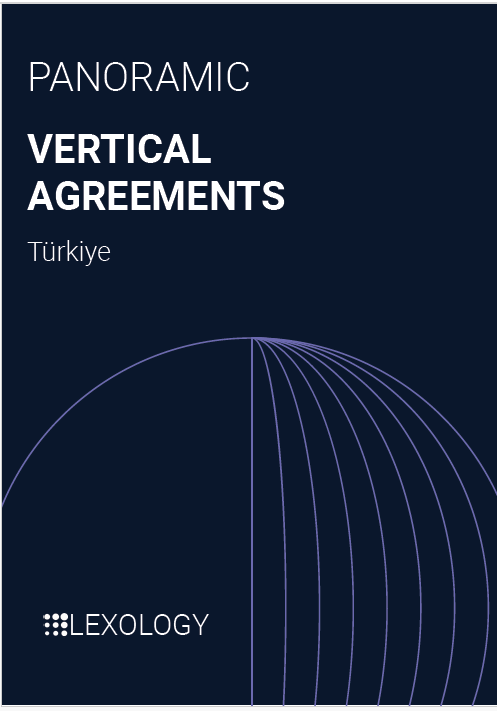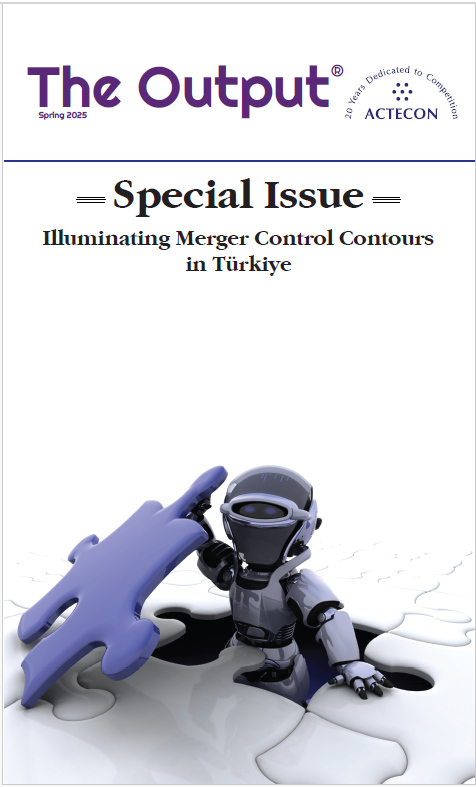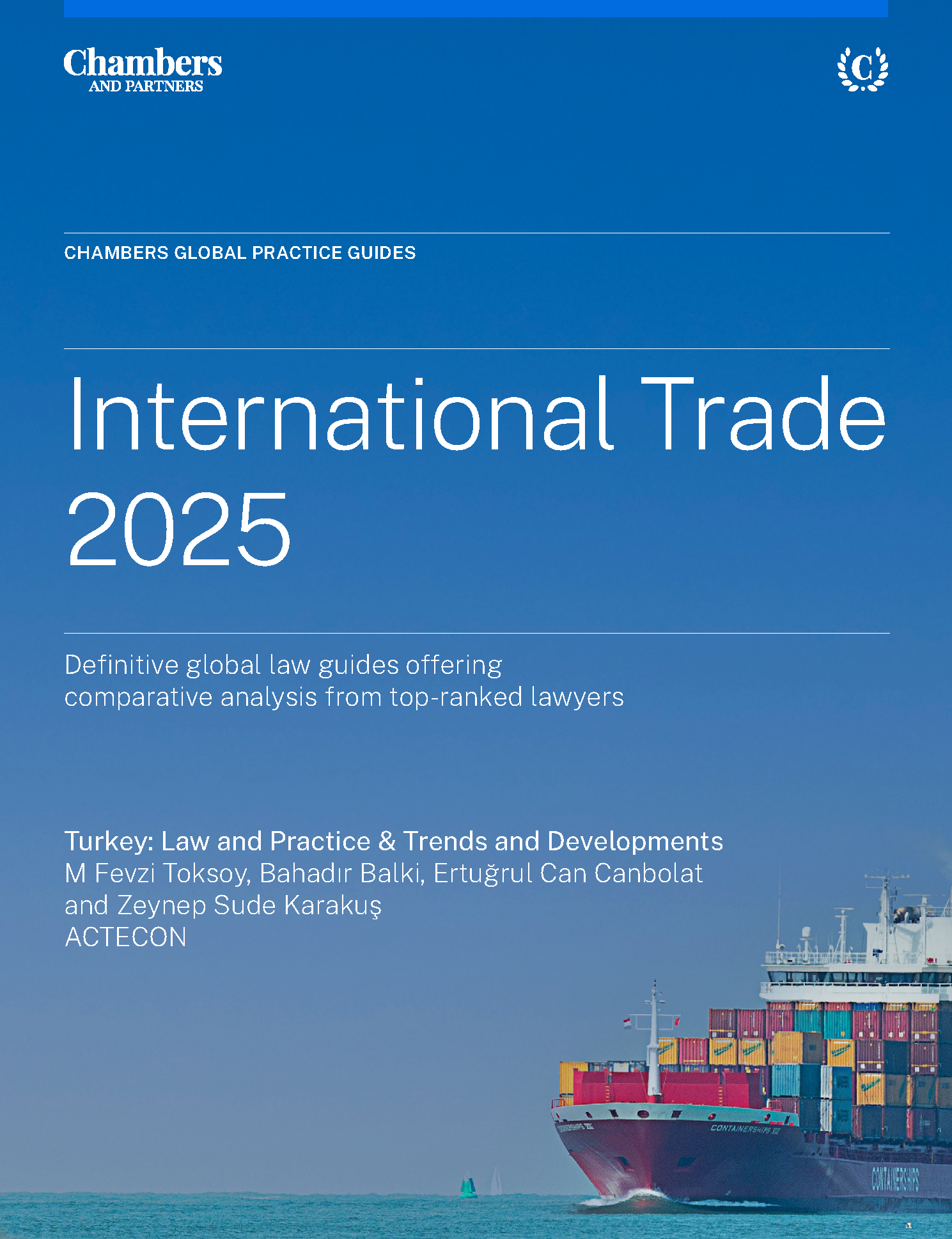The Turkish Administrative Court Decided that the Practices based on Secondary Legislation in Force Cannot be Deemed as Violation of the Competition Law
| Competition Law

The Turkish Administrative Court Decided that the Practices based on Secondary Legislation in Force Cannot be Deemed as Violation of the Competition Law (TMMOB/EMO)
Article by Ertuğrul Can Canbolat, Caner K.Çeşit and Alper Karafil
Introduction
On 13 October 2020, the Turkish Competition Authority (“TCA”) announced that Ankara 17th Administrative Court (“Court”) suspended[1] the TCA’s decision fining the practices of Electrical Engineers Chamber (Elektrik Mühendisleri Odası – “EMO”[2]) with respect to the establishment of minimum fees for the services to be rendered by the concerned professionals[3] and on 5 November 2020, 8th Administrative Chamber of Ankara Regional Administrative Court (“Regional Court”) rejected the TCA’s appeal against this suspension decision[4]. All those decisions are highly recommended readings since:
- the Court’s decision is one of the rare judgments in which the Court resolved in favour of a suspension request,
- the Court’s suspension judgment demonstrates that the TCA’s above-mentioned decision will be annulled,
- eventually, they might also shed light on the potential future outcome regarding the TCA’s cases on ‘regulated’ powers of professional chambers and the importance of waiting final judgments concerning the annulment requests against those powers.
Therefore, it is undeniable that this case provides a good overview to practitioners in the context of suspensions of the TCA decisions. That being said, it should also be stressed that the judgment might have missed the opportunity to enable a comprehensive guidance as to the conditions for suspension. In effect, the necessary conditions to suspend a decision of the TCA are relatively strict but there are no detailed judgments revealing the details of the assessment of the conditions to suspension.
Overview of the Court’s Suspension Decision
In the face of the existence of the regulations issued by TMMOB that are in force since they have not been cancelled as a result of the administrative jurisdiction, which are the basis of behaviours subject to a violation, the Court ruled that it is not possible to impose administrative fine due to the violation of the Competition Law. Thus, it is concluded by the Court that acts performed based on the secondary legislation in force in accordance with the law cannot be fined.
The Court indicated that pursuant to the relevant legislation, professional chambers are authorised regarding regulation of a tariff determining the minimum standard in terms of the fee to be paid to the members of a profession in return for the service they provide and audit of compliance with the respective tariff. In addition, the Court considered that the acts performed based on the regulation in force does not violate the Competition Law considering that the lawsuits filed by the TCA against the provisions of the regulation regarding the authorization on determination of the minimum fee are dismissed. Accordingly, an opinion has been established that the acts performed based on the secondary legislation in force, even if it is not at the law level, cannot be fined due to violation of the Competition Law unless they are annulled.
Overview of the TCA’s Decision
TMMOB, which has a legal personality and is a professional organization with the characteristics of a public body operates within the framework of the TMMOB Law No. 6235 (“TMMOB Law”). EMO is one of the 24 chambers that bringing engineers, professional engineers, architects, and professional architects[5] under a single roof and operates within the body of TMMOB. EMO is established under the TMMOB Law and has a public legal personality.
Sectoral regulations are made with the regulations issued by TMMOB regarding the functioning of chambers, commissions and minimum fee. Among the foregoing, there are regulations that regulate the determination of the minimum fee, its scope, the establishment of commissions related to the determination of the minimum fee and the duties of these commissions, and the sanctions to be applied in case of non-compliance with the minimum fee. Likewise, EMO also has the authority to issue regulations regarding the activities of the chamber and its members, and some of the regulations issued by EMO are directly related to the determination of the minimum fee for the works to be performed by its members.
Within the scope of the file, the TCA first evaluated whether the acts of TMMOB and EMO can be analysed within the scope of the Competition Law and emphasized that the acts of every entity having the characteristics of an undertaking/association of undertakings affecting the markets of goods and services are included in the scope of the Competition Law regardless of whether it is a public body or a private institution. Within this framework, the TCA determined that the members of EMO are deemed as an undertaking under the Competition Law and EMO operates as an association of undertakings. Accordingly, it is concluded that the acts of TMMOB EMO can be considered within the scope of the Competition Law.
In the evaluation performed by the TCA, it is stated that it is natural for professional associations to make various regulations within the boundaries of the legislation they are subject to, but however, these regulations should not constitute violation of the Competition Law. Within this context, the TCA indicated that the provisions in the respective regulations regarding the determination of the minimum fee are contrary to the Competition Law. Therefore, the TCA indicated that the legal basis of the regulations issued by EMO should be examined in order to determine whether regulations are made by the legislator or the authorized administration.
In examination of the legislation by the TCA, it is concluded that there is no price determination authorization including minimum fee granted to TMMOB and there is no explicit provision in the relevant laws indicating that TMMOB EMO exempts from the application of the Competition Law. The TCA, after determining that the provision of minimum fee was introduced with the regulations issued by TMMOB and EMO instead of the law by itself, concluded that there is a conflict between the Competition Law and the regulations. At this point, the TCA emphasized that there is a conflict between a law and a regulation, in other words, between the legal norms in different levels. Accordingly, the TCA referred to the case law related to the hierarchy of norms in terms of applicability of the Competition Law.
The TCA specified that whether decisions and acts of an association of undertakings have a legal basis plays an important role in terms of the application of the Competition Law. Accordingly, it is examined whether there is an authorization on determination of fees granted to TMMOB in various legislations and whether the determination of the minimum fee is performed within the scope of the presumptive legal authorization.
It has been emphasized by the TCA that, due to the hierarchy of norms, regulations cannot be issued against the laws on which they are based nor can they be against other laws and norms above them in the hierarchy of norms. Therefore, the TCA primarily pointed out that the provisions of the law should be applied, and the regulations might be applied if they are not against the law, which is the superior norm. In case of a conflict between the regulation and the law, it is mandatory to solve the conflict by implementing the law since it is the superior norm according to the TCA.
In this regard, although it is stated that a judicial examination of the regulations issued by TMMOB and EMO is required to determine their compliance with the law, the TCA considered that the Competition Law, which is the superior norm compared to the regulation, should be implemented in order to prevent acts restricting competition by the association of undertakings until the conflict between the law and the regulation is completely eliminated.
At the date of the TCA decision, it has been evaluated that the pendency of the lawsuit filed for the cancellation of the relevant provisions of the regulations would not prevent the Competition Law from being applied to the concrete case. The TCA underlined that in the contrary scenario, the Competition Law may become inapplicable to any decision of associations of undertakings as a result of that associations of undertakings which have the authority to regulate may claim that their acts are conducted in accordance with provisions of the legislation and declare that the Competition Law cannot be applied to their acts. Likewise, the actions restricting competition will remain unpenalized while a judicial decision regarding the annulment of the relevant provisions is pending, until a possible decision of the judicial authorities stating that the Competition Law can be applied to the respective actions.
Within this framework, it has been evaluated that the Competition Law should be applied to the acts, which restrict competition, that TMMOB and EMO carried out based on the relevant regulations until the judicial authorities certainly determine that the regulations are lawful. Thus, after stating that determination of the minimum fee through a decision of association of undertakings constitutes a by object violation, the TCA concluded that the decisions and acts of TMMOB and EMO regarding the minimum fee violate the Article 4 of the Competition Law. Accordingly, the TCA imposed on TMMOB EMO an administrative fine of TRY 253,486.82, at the rate of 6% of their gross income generated at the end of 2018 fiscal year by considering market power of the association of undertakings and duration of the violation.
Highlights of the Decisions
In application of hierarchy of laws, even if an act is contrary to the Competition Law in appearance, in case that it is based on another law that is at the same level with the Competition Law, it is exempted from the application of the Competition Law. Thus, acts performed based on another law at the same level with the Competition Law within the hierarchy of norms can be deemed as an exception and excluded from the scope of the Competition Law’s application. In such cases, the TCA generally attempts to initiate competition advocacy so that both norms can be applied together.
However, within the scope of the hierarchy of laws, acts based on the regulations, communiques and similar secondary legislation which are at a lower level than the Competition Law, the TCA does not hesitate to impose an administrative sanction to those acts due to violation of the Competition Law, in the absence of a clear basis in the law which is the superior norm of the secondary legislation or a provision stating that the Competition Law will not be applied. The TCA considers that the secondary legislations such as regulation, communiqué and directive, which take place beneath other laws according to the hierarchy of norms, do not preclude the application of the Competition Law in the absence of mentioned exceptions. Indeed, it is argued by the TCA that this approach is also a requirement of the hierarchy of norms that unlawful provisions cannot be imposed with the regulations which take place under the laws, even if they are, the law will be applied in case of conflict.
At the case at hand, the TCA found that since TMMOB and EMO have not been granted an authorization based on the law, the determination of the minimum fee tariff based on the provisions of the regulations and directives issued is contrary to the Competition Law. At the same time the TCA filed a lawsuit before the administrative jurisdiction requesting the annulment of the relevant provisions in the mentioned regulations within the respective process. In the meantime, it was emphasized that waiting for the result of the lawsuit might cause the practices based on the regulations to remain without sanction, and accordingly, an administrative fine was imposed on the relevant association of undertakings.
The suspension of execution decision given by the Court may lead the TCA to review its application regarding the hierarchy of laws. Indeed, the Court has established a case law indicating that the practices based on the regulations put into effect in accordance with the law cannot be interpreted as contrary to the Competition Law until the relevant regulation is annulled.
Concluding Remarks
One of the most important impacts of the Court’s decision in terms of practical terms is that it establishes an approach that the Competition Law cannot be applied until the regulations which are the basis of the behaviours deemed contrary to the Competition Law are annulled. In this direction, it is thought that the TCA will no more be able to directly impose an administrative monetary fine on the practices based on a secondary legislation contrary to the Competition Law.
In our opinion, the TCA, in such a scenario, will be able to file an action for annulment against the provisions of the respective regulation, but however, will have to wait until the relevant case is concluded. In case that the relevant provisions of regulation are not annulled in conclusion of the lawsuit as in the concrete case, practices presumably deemed contrary to the Competition Law will not be fined since they are in accordance with secondary legislation. In case of the annulment of the relevant provisions of regulation, it will be possible to implement the Competition Law retrospectively and impose a fine on the relevant practices due to violation of the Competition Law.
At this stage, it remains unclear how possible objections to the Court’s decision to be made by the TCA will be concluded. As things stand, what is expected from the TCA, in line with its competition advocacy role, is to communicate with the relevant public bodies and organizations in order to make the secondary legislation based on other laws compliant with the Competition Law.
[1] Court’s decision dated 25.09.2020 and numbered E. 2020/986.
https://www.rekabet.gov.tr/Safahat?safahatId=82d7e698-b6c6-459e-b147-86fd19615afc
[2] Part of the Union of Chambers of Turkish Engineers and Architects (Türk Mühendis ve Mimar Odaları Birliği – “TMMOB”).
[3] TCA’s decision dated 26.12.2019 and numbered 19-46/791-345.
https://www.rekabet.gov.tr/Karar?kararId=6114344f-e8e6-4f7a-ad05-7359cc583e63
In its decision, the TCA resolved that the concerned practice is against Article 4 of the Law No. 4054 on the Protection of Competition (“Competition Law”).
[4] Regional Court’s decision dated 05.11.2020 and numbered E. 2020/622.
https://www.rekabet.gov.tr/Safahat?safahatId=7f89533d-33f0-4f8a-aaa0-95c331d5bde3
[5] Electrical engineers are required to register with EMO in order to operate in the market. Members of EMO offer services such as indoor installations, high current projects, power transmission lines and transformer station projects for a certain fee by designing and bearing the audit risk of the respective projects.







